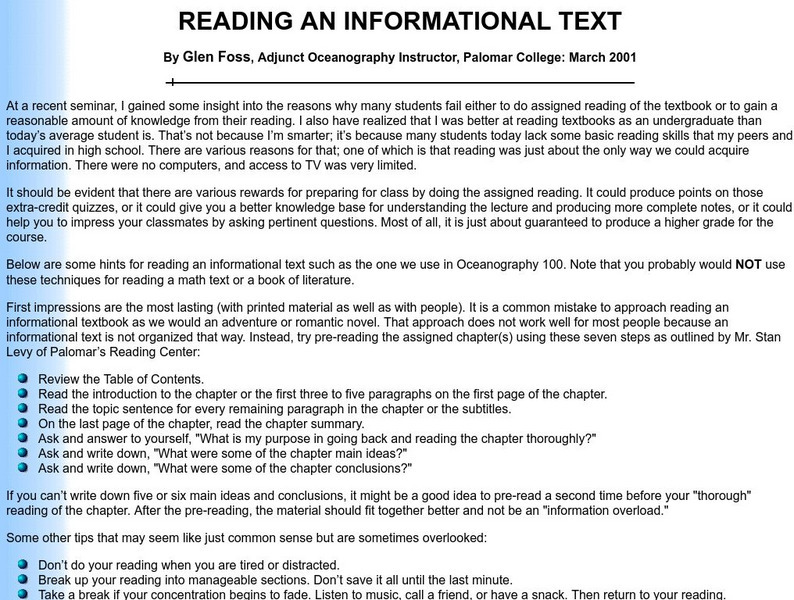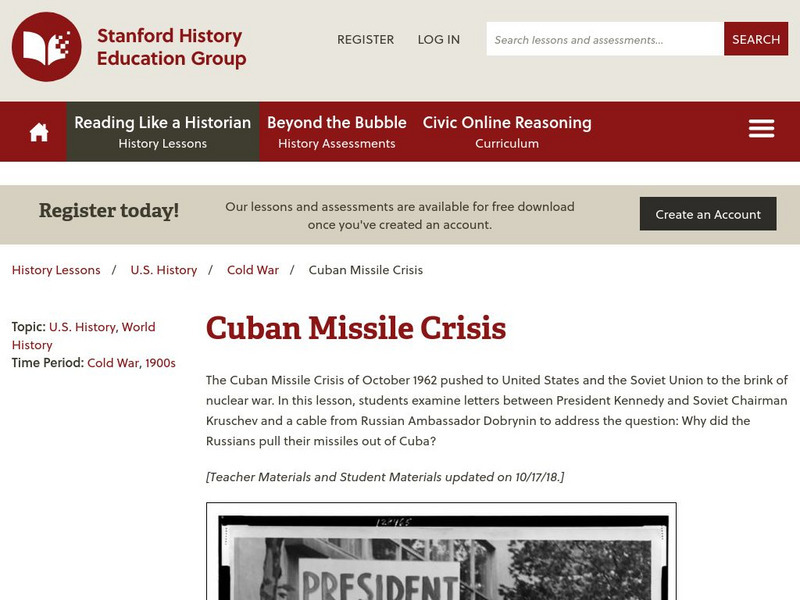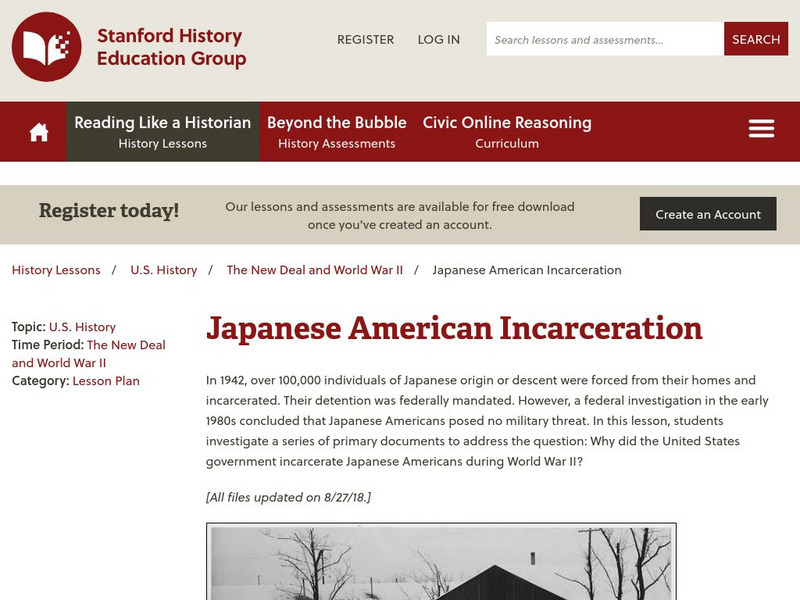New York State Education Department
TASC Transition Curriculum: Workshop 5
Are video games sports? Pupils investigate this question as well as various nonfiction selections to learn more about claims and the support that defines them. All of the selections mimic the rigor on state tests and encourage close...
EngageNY
TASC Transition Curriculum: Workshop 15
What do a cheetah, Audi commercial, and air have in common? They're all topics of an engaging inquiry-based, hands-on workshop for educators about background knowledge, reading strategies, the CER model, and argumentative writing. The...
New York State Education Department
TASC Transition Curriculum: Workshop 11
You'll C-E-R a difference in classroom achievement after using a helpful lesson plan. Designed for economics, civics, government, and US history classes, participants practice using the CER model to craft arguments about primary and...
EngageNY
TASC Transition Curriculum: Workshop 12
How can opinions slant facts? Workshop participants learn how to examine primary and secondary sources and identify the author's point of view. They also examine how visual art impacts the meaning and rhetoric of sources. Full of...
EngageNY
TASC Transition Curriculum: Workshop 6
Is a college education necessary for success in today's world? The class investigates the question, along with others at the end of the sixth workshop in a 15-part series. The instructional activity has four parts with multiple...
Texas Education Agency
Texas Gateway: Distinguishing Between Inductive and Deductive Reasoning
This lesson focuses on distinguishing between inductive and deductive reasoning. Sometimes it's difficult to separate these two types of reasoning because we often use them together; drawing conclusions in inductive reasoning is likely...
Sophia Learning
Sophia: Critical Reading as a Learning Strategy
This tutorial focuses on critical reading using a downloadable PowerPoint presentation, "Critical Reading 101," which includes separating fact from opinion, 6 propaganda techniques, and 6 common fallacies in reasoning. Also provided is...
BBC
Bbc: Ks2 Bitesize English: Reading
This site provides activities, games, tests, and worksheets in reading areas: deduction, dictionaries, poetry, and non-fiction.
Texas Education Agency
Texas Gateway: Analyze an Argument: Practice 1 (English I Reading)
In this lesson, students practice analyzing the evidence that supports or opposes an argument. They are also going to learn to analyze the quality, relevance, and credibility of the evidence so you can decide whether to accept the...
Khan Academy
Khan Academy: Conditional Reasoning and Logical Equivalence
How do we recognize logically equivalent conditional statements? Conditional (or "if-then") statements can be difficult to master, but your confidence and fluency on the LSAT will improve significantly if you can recognize the various...
Texas Education Agency
Texas Gateway: Scientific Reasoning
Do you know how to evaluate scientific information? This tutorial reviews how to read and interpret scientific research and information.
Texas Education Agency
Texas Gateway: Cognates (English Iii Reading)
In this lesson you'll learn about different types of cognates, words that sound or look alike from one language to the next. You'll learn how leveraging cognate knowledge helps you figure out unfamiliar words in English. When you combine...
Scholastic
Scholastic: So That's the Reason! [Pdf]
Simple, one-page printable worksheet to introduce your students to cause and effect. Gives one set example, and has space at the bottom to apply to any story you read.
Scholastic
Scholastic: Informational Text: Reading Response: Claim Evldence Reasoning [Pdf]
This graphic organizer can be used with students when they read informational text. Students will identify a claim, list text evidence that supports the claim, and explain how the information can be used for their future understanding of...
Palomar Community College District
Palomar College: Reading an Informational Text
Glenn Foss, an instructor at Palomar College, discusses some possible reasons why students have problems reading and recalling textbook material. Provides an outline for seven steps of effectively reading assigned material.
Read Works
Read Works: Developing Possible Solutions
[Free Registration/Login Required] An informational text about solving problems. A question sheet is available to help students build skills in reading comprehension.
Thinkport Education
Thinkport: Writing Explanation Part 1: Claims, Evidence and Reasoning
In this module, students will explore how claims, evidence and reasoning are used to write an effective explanation. Students will read an article that addresses the question of whether climate change is now confirmed after record high...
Thinkport Education
Thinkport: Writing Explanation Part 1: Claims, Evidence and Reasoning
In this module, students will explore how claims, evidence and reasoning are used to write an effective explanation. Students will read an article that addresses the question, "Should Congress consider comprehensive climate change laws?"
US Department of Agriculture
Usda: Vitamin K, Another Reason to Eat Your Greens
The USDA provides this site that shows an article that explains vitamin K's role in maintaining bone health in people of all ages. Here, you can read about research studies that have explored vitamin K intake among groups of people.
Stanford University
Sheg: Document Based History: Reading Like a Historian: Spanish American War
[Free Registration/Login Required] Learners use primary source documents to investigate central historical questions. In this investigation students study the Spanish-American War by watching a documentary video, reading a telegram...
Stanford University
Sheg: Document Based History: Reading Like a Historian: Anti Suffragists
[Free Registration/Login Required] Students solve a problem surrounding a historical question by reading primary source documents. This historical inquiry lesson allows students to study a speech and anti-suffrage literature to explore...
Stanford University
Sheg: Document Based History: Reading Like a Historian: Cuban Missile Crisis
[Free Registration/Login Required] After reviewing documents related to United States and Soviet Union national leadership, students will discuss the reasons Russia extracted their missiles from Cuba.
Stanford University
Sheg: Document Based History: Reading Like a Historian: Japanese Internment
[Free Registration/Login Required] A lesson delving into the reasoning behind interning the Japanese-Americans following the Pearl Harbor attack. Students will explore primary source documents to draw their conclusions.
CommonLit
Common Lit: The Selective Laziness of Human Reasoning
A learning module that begins with "The Selective Laziness of Human Reasoning" by Tania Lombrozo, accompanied by guided reading questions, assessment questions, and discussion questions. The text can be printed as a PDF or assigned...
Other popular searches
- Ell/esl Reading and Reasoning
- Esl/ell Reading and Reasoning
- Ell Reading and Reasoning
- Ell.SL Reading and Reasoning




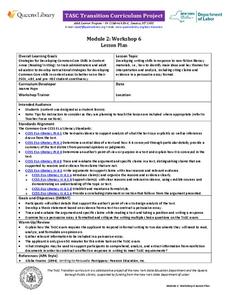


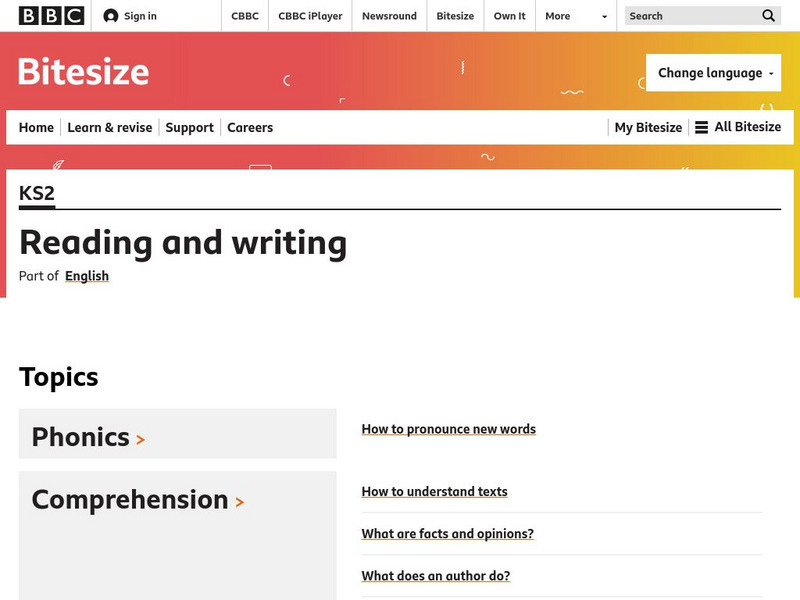
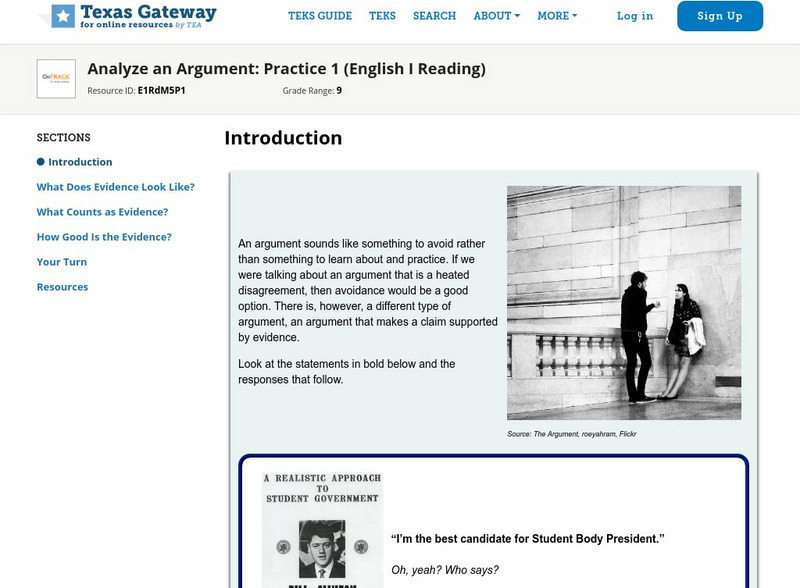


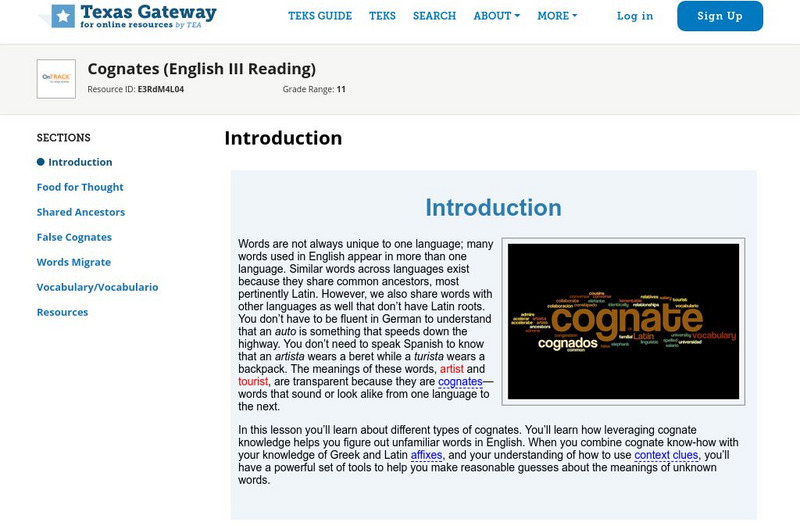
![Scholastic: So That's the Reason! [Pdf] Unknown Type Scholastic: So That's the Reason! [Pdf] Unknown Type](https://content.lessonplanet.com/knovation/original/32238-436f863b7c91b994bd9fe2e7c4a03769.jpg?1661264711)
![Scholastic: Informational Text: Reading Response: Claim Evldence Reasoning [Pdf] Graphic Scholastic: Informational Text: Reading Response: Claim Evldence Reasoning [Pdf] Graphic](https://content.lessonplanet.com/knovation/original/244734-74184753ee53d6872b10ba36f1639585.jpg?1661510818)
